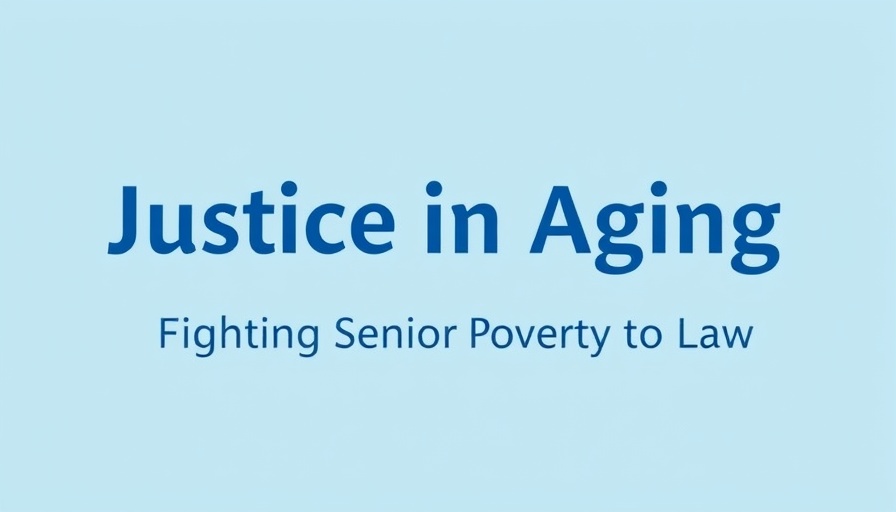
Understanding the Budget Reconciliation Act of 2025
The Budget Reconciliation Act of 2025 brings significant changes to healthcare provisions that affect millions of low-income older adults. Enacted on July 4, 2025, this legislation introduces restrictions on essential Medicaid funding mechanisms. These changes are particularly concerning for those who rely on Medicaid Home- and Community-Based Services (HCBS) for their long-term care needs.
Impact on Medicaid Funding Mechanisms
One of the most alarming aspects of the new law is its restriction on Medicaid funding, which could lead states to cut optional services, including essential HCBS. The implications are profound; these cuts could endanger the independence and quality of life for many older adults who depend on these services. Without access to HCBS, elders may face institutionalization, disrupting their daily lives and the care they currently receive in their communities.
Barriers to Accessing Medicaid Coverage
The act also increases barriers to accessing Medicaid coverage for long-term care. Many low-income seniors who are dually enrolled in Medicaid and Medicare may find it more difficult to navigate their benefits. As it stands, the elimination of measures that previously simplified Medicaid eligibility will likely add unnecessary complexity to an already challenging system, making it harder for vulnerable populations to secure the health care they desperately need.
Concerns over Staffing Protections
Another critical area of concern is the rescinding of vital staffing protections in nursing homes. This decision could threaten the safety and well-being of millions of nursing home residents, as facilities face pressure to cut costs, possibly leading to under-staffing and a decline in the quality of care provided. For families of seniors in these facilities, this is a worrying turn of events that compromises their loved ones' safety.
Financial Insecurity for Older Adults
With the act’s provisions potentially reshaping Medicare eligibility and access, many seniors might find themselves financially insecure. The rescinded efforts to modernize Medicaid eligibility are especially concerning for low-income seniors. Essentially, the act could cut access to Medicare for those who substantially rely on these benefits, creating an additional layer of financial burden.
Effects of Red Tape
The legislation imposes burdensome red tape that threatens to strip away health coverage from countless low-income older adults, people with disabilities, and their caregivers. Such bureaucratic hurdles can often dissuade individuals from pursuing the health services they need, further exacerbating existing inequalities in healthcare access.
Immigrant Access to Healthcare
Moreover, this new law negatively impacts immigrants' access to vital healthcare support. The cuts offered in this legislation restrict immigrants’ ability to enroll in Medicaid, Medicare, and various market options. This means many immigrant families may lack crucial coverage during their time of need, which can be particularly detrimental in health crises.
Looking Ahead: Future Implications
As the nation moves forward with these changes, it’s clear that the implications of the Budget Reconciliation Act of 2025 will be felt for years to come. Advocacy groups and community organizations are urged to monitor these developments closely and mobilize for additional support. The repercussions of the legislative changes pose serious challenges to older adult populations, and community leaders must push for equitable solutions.
Take Action: Advocate for Change
It is essential for concerned citizens to get involved and advocate for the interests of low-income older adults affected by these changes. Joining local advocacy groups or reaching out to representatives can be effective ways to express your concerns and support those in need of essential health services. The well-being of our seniors is at stake, and collective action is key to ensuring their rights and access to healthcare are preserved.
 Add Row
Add Row  Add
Add 




Write A Comment